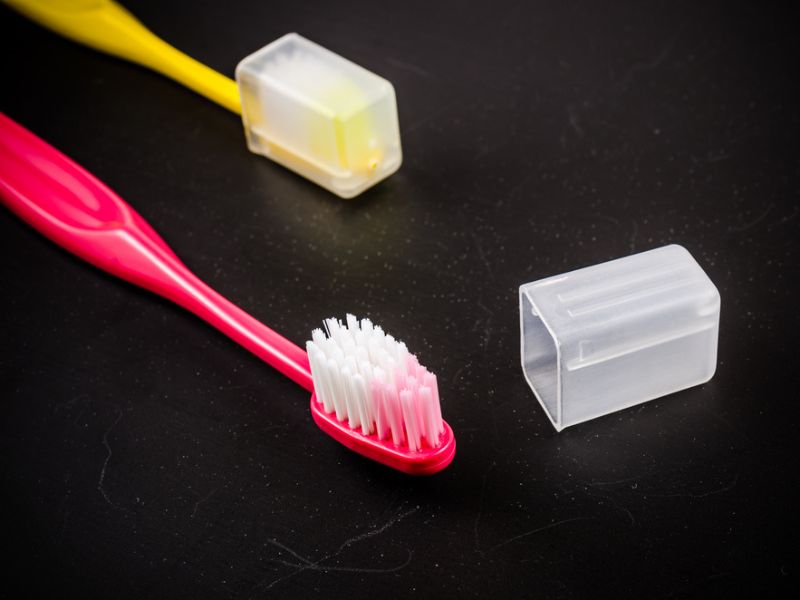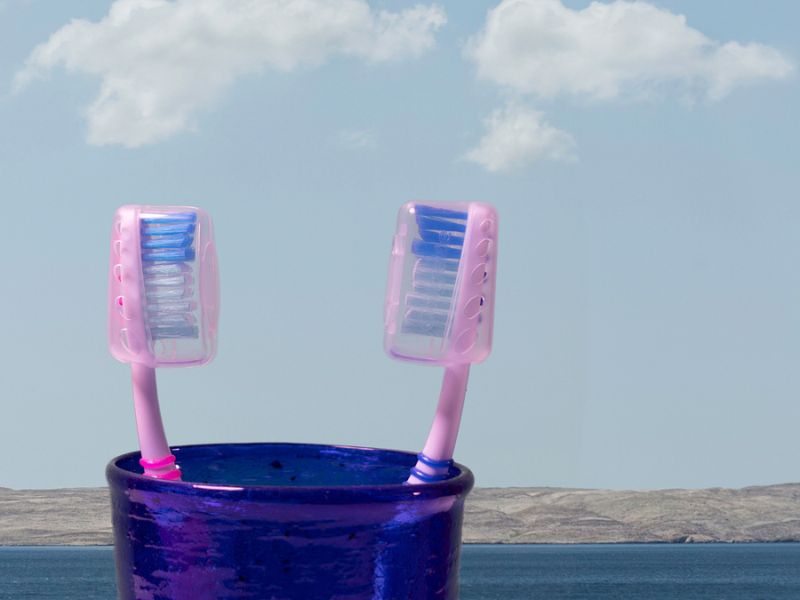Many people have adopted the habit of using toothbrush covers to keep their toothbrushes clean and protected from germs. However, recent research suggests that using a toothbrush cover may not be as beneficial as previously believed. In this article, we will explore why toothbrush covers might not be as effective as you think and offer alternative suggestions for maintaining oral hygiene.

Image Credit: Shutterstock/bookzaa
Trapped Moisture And Bacterial Growth
One of the drawbacks of toothbrush covers is that they create a moist environment, which promotes bacterial growth. After brushing, the bristles naturally retain some moisture. When the toothbrush is covered, this moisture becomes trapped, providing an ideal breeding ground for bacteria. Over time, the moist bristles can harbor harmful microorganisms, undermining the toothbrush cover’s purpose.
Impaired Drying Process
Proper drying is crucial for preventing bacterial growth on toothbrushes. When you cover your toothbrush, the bristles remain wet for extended periods, as the cover impedes airflow. This prolonged dampness increases the risk of bacterial contamination. Instead, it is recommended to rinse your toothbrush thoroughly after each use and allow it to air dry in an upright position. It allows the bristles to dry out effectively and reduces the likelihood of bacterial proliferation.
Mold And Mildew Concerns
Toothbrush covers can inadvertently promote the growth of mold and mildew. Bathrooms are typically humid environments, providing favorable conditions for these unwanted guests. When a toothbrush is sealed in a cover without proper drying, moisture accumulates, creating an ideal habitat for mold and mildew to thrive. It can introduce additional health risks. Therefore, storing your toothbrush in an open space that receives proper ventilation, allowing it to dry naturally, is best.

Image Credit: Shutterstock/Sergio Delle Vedove
The Importance of Proper Oral Hygiene
Practices
While toothbrush covers might not be the best option for maintaining oral hygiene, there are several other essential practices you should incorporate. Regularly replacing your toothbrush every three to four months, using fluoride toothpaste, and flossing daily are fundamental for optimal oral health. These practices and proper toothbrush drying techniques will help ensure a clean and healthy mouth.